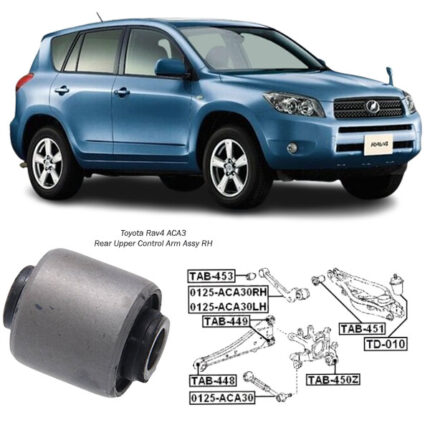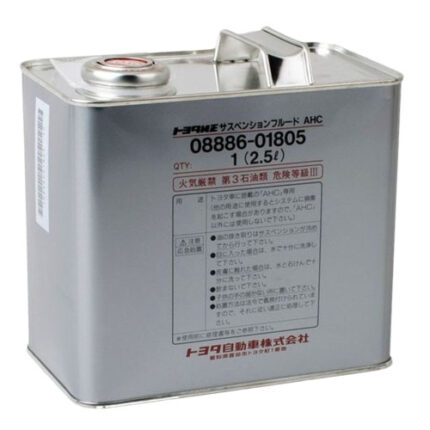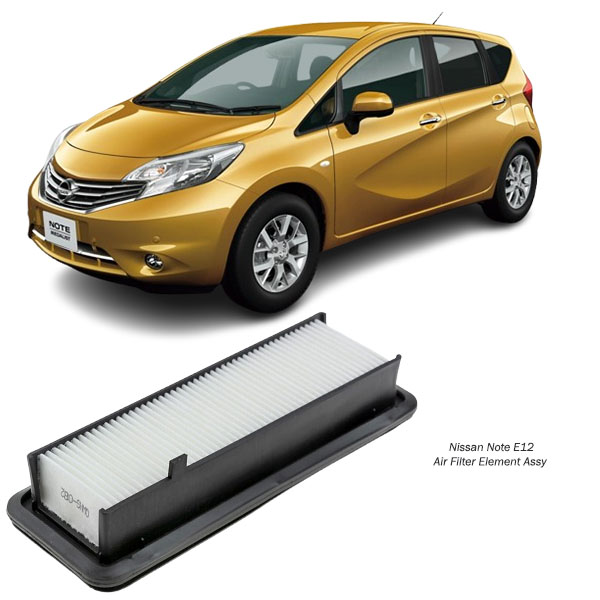-33%
Get Nissan Note E12 Air Filter Element 16546-3HD0A in Kenya
An air filter element is a crucial component in a vehicle’s engine system, responsible for filtering the air that enters the engine. Clean air is vital for combustion engines, as they require a precise balance of fuel and air for efficient operation. The air filter element captures dust, dirt, and other contaminants before they reach the engine, ensuring that only clean air mixes with fuel for combustion. This helps maintain engine performance, fuel efficiency, and reduces wear on engine components. Let’s explore the functions, benefits, types, maintenance, and tips for air filter elements in depth.
1. Purpose of the Air Filter Element
The air filter element serves as a barrier, preventing harmful particles from entering the engine. If dust, dirt, or debris enters the engine, it can lead to increased wear on critical parts, such as the cylinders and piston rings. These contaminants can even cause engine damage over time. The air filter element ensures only clean, particle-free air enters the engine, allowing for:
- Optimal Combustion: A well-functioning air filter ensures that the air-fuel mixture is balanced, which is essential for efficient combustion.
- Protection for Engine Components: By capturing contaminants, the filter reduces the risk of abrasive particles damaging the engine’s internal parts.
- Improved Fuel Efficiency: Clean air helps the engine operate more efficiently, which can lead to better fuel economy.
- Reduction in Emissions: A properly functioning air filter helps keep emissions down by ensuring clean combustion.
2. How an Air Filter Element Works
Air filter elements are typically located within the air intake system, often near the top or front of the engine bay. They are made of materials such as paper, foam, cotton, or synthetic fibers designed to capture airborne contaminants. The filter element is usually placed in a housing unit that directs airflow through it, so all incoming air is forced to pass through the filter media before reaching the engine.
As the air passes through, the filter material traps dirt, dust, pollen, and other airborne particles, preventing them from entering the engine. Over time, the filter collects more debris, gradually reducing its effectiveness as it becomes clogged, which is why routine replacement is essential.
3. Types of Air Filter Elements
Several types of air filter elements are used in automotive applications, each with distinct materials and performance characteristics:
- Paper Air Filters: These are among the most common and are made of densely packed paper fibers. Paper filters are effective, affordable, and disposable, making them ideal for standard vehicle use.
- Foam Air Filters: Typically used in high-performance or off-road vehicles, foam filters consist of porous foam that captures larger particles. Foam filters are washable and reusable but are less efficient at filtering finer particles.
- Cotton Gauze Filters: Often found in performance or aftermarket applications, cotton gauze filters are made of multiple layers of cotton sandwiched between wire mesh. They provide high airflow and are washable and reusable, making them popular for performance-focused vehicles.
- Synthetic Air Filters: Synthetic air filters are made from man-made fibers and offer excellent filtering capability, often with higher efficiency than paper or foam. They can be washable or disposable, depending on the brand and model.
- Carbon Air Filters: These are specialty filters containing activated carbon for additional odor and gas filtration. Carbon filters are common in high-end vehicles and are particularly beneficial in areas with high pollution.
4. Benefits of a Clean Air Filter Element
Regularly replacing or cleaning the air filter element offers several advantages:
- Enhanced Engine Performance: Clean air allows the engine to perform at its best, ensuring smoother acceleration and more responsive handling.
- Better Fuel Economy: A clean air filter reduces strain on the engine, which often results in improved fuel efficiency. Dirty filters can cause the engine to work harder and consume more fuel.
- Reduced Emissions: A clogged filter restricts airflow, leading to incomplete combustion and increased exhaust emissions. Clean filters help reduce the amount of pollutants released.
- Prolonged Engine Life: By preventing contaminants from entering the engine, the air filter reduces wear and tear on engine components, which helps extend engine life.
- Improved Cabin Comfort (if combined with cabin air filters): In vehicles with advanced filtration systems, clean air filters also contribute to improved air quality in the cabin, particularly beneficial for passengers with allergies.
5. Signs of a Dirty or Clogged Air Filter
Knowing when to replace an air filter is key to maintaining engine health. Some signs indicating that the air filter needs attention include:
- Reduced Fuel Efficiency: A dirty filter can cause a drop in fuel economy.
- Decreased Engine Power: If the engine feels sluggish or less responsive, a clogged filter might be restricting airflow.
- Engine Misfires or Rough Idling: A severely clogged filter can cause improper air-fuel balance, leading to misfires or rough idling.
- Black Smoke from the Exhaust: When the engine struggles to get enough air, it can lead to incomplete combustion, which can cause black smoke to emit from the exhaust.
- Visible Dirt on the Filter: If the filter appears dirty or clogged with debris, it’s time for a replacement.
6. Maintenance and Replacement Tips
Proper maintenance of the air filter is essential to keep your engine running smoothly. Here are some tips to ensure your air filter stays in good condition:
- Follow the Manufacturer’s Guidelines: The recommended replacement interval for air filters varies by vehicle make and model. It’s best to follow the manufacturer’s maintenance schedule.
- Inspect Regularly: Even if a replacement isn’t due, inspect the air filter at least once every six months or more frequently in dusty environments.
- Choose Quality Filters: Not all filters are created equal. Using a high-quality filter designed for your vehicle can enhance performance and longevity.
- Consider Aftermarket Performance Filters: If you’re looking to improve airflow or have a high-performance vehicle, aftermarket filters can offer higher airflow rates and longer life but might require additional maintenance.
- Replace or Clean as Needed: Disposable filters should be replaced, while reusable filters like foam or cotton gauze should be cleaned according to manufacturer instructions.
7. How to Replace an Air Filter Element
Replacing an air filter is a simple process that can often be done at home with basic tools:
- Locate the Air Filter Housing: Typically, the air filter housing is near the top of the engine bay. Consult your vehicle’s manual for the exact location.
- Open the Housing: Unclip or unscrew the housing cover to access the air filter.
- Remove the Old Filter: Take out the old filter and inspect it for dirt or damage.
- Insert the New Filter: Place the new filter in the housing, ensuring it fits snugly.
- Close the Housing: Reattach the housing cover securely, ensuring there are no gaps or loose connections.
8. Environmental Impact of Air Filters
Disposable air filters made from paper or synthetic materials can contribute to landfill waste, so consider using reusable options when possible. Reusable filters are designed to last longer and can be cleaned multiple times, reducing environmental impact. Additionally, regular replacement helps improve fuel efficiency, which can lead to lower overall emissions from your vehicle.
9. Cost Considerations
The cost of air filter elements varies depending on the type, brand, and vehicle model. While disposable paper filters are generally inexpensive, performance filters or reusable options may cost more upfront but can save money in the long run. High-performance filters can be a cost-effective solution for those looking to maintain better airflow over time.
10. Choosing the Right Air Filter
When selecting an air filter for your vehicle, consider the following factors:
- Driving Conditions: For those who frequently drive in dusty or polluted environments, high-performance or synthetic filters may offer better protection.
- Vehicle Type and Make: Some vehicles have specific requirements for airflow, which may necessitate certain filter types.
- Budget: While reusable filters have higher initial costs, they can be more economical over time.
- Maintenance Preference: Some filters require periodic cleaning, so consider whether you prefer low-maintenance disposable filters or are willing to clean a reusable one regularly.
11. Conclusion
The air filter element plays a vital role in protecting the engine, enhancing performance, and improving fuel economy. Whether you drive a daily commuter or a high-performance vehicle, maintaining a clean air filter can have significant benefits for both engine life and efficiency. Regular inspection and timely replacement are key to ensuring your vehicle operates smoothly, saving money on fuel, reducing emissions, and extending the lifespan of your engine.
Follow us on Facebook for more parts.



